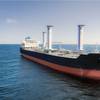Climate Rules Could Put $1.1 Trl In Oil Investment At Risk
Investors could spend up to $1.1 trillion over the next decade on oil projects and assets that never reach production if governments enforce measures to curb climate change, a report by Carbon Tracker Initiative said.
The Carbon Tracker report, released on Thursday, could help funds and other investors avoid putting their money in oil assets that remain buried forever.
The $1.1 trillion, around 15 percent of the decade's total global oil and gas spending at current rates, is earmarked for projects to 2025 that require a market price of at least $95 a barrel to break even.
That investment is at risk if governments enforce plans to curb the global rise in temperatures to 2 degrees Celsius, which scientists say is the threshold for avoiding the worst effects of climate change.
Almost 200 nations have endorsed that goal and are due in 2015 to sign up to cut greenhouse gas emissions to help meet it.
Those measures will cut demand for fossil fuels including oil and lower prices and revenues, according to the report.
"Gambling on a $95/bbl oil price on behalf of shareholders is risky, given that oil prices have dropped to $40 per barrel twice in the last decade," James Leaton, Carbon Tracker's research director, said in a statement released on Thursday.
The International Energy Agency (IEA) said last year that even under current policies half of proven fossil fuel reserves would be left undeveloped to 2050 and that this percentage would increase as governments impose tougher curbs.
The oil industry is coming under increasing pressure from investors to reduce exposure to high-cost, risky projects and also to report the risks to their business from climate policies.
"The Carbon Tracker report will be useful to investors engaging oil companies on whether they are using shareholder capital prudently as we transition to a lower-carbon future," Anne Stausboll, chief executive of Calpers, the largest U.S. public pension fund in the United States, said in a statement.
HIGH EXPOSURE
Benchmark Brent crude is trading at around $107 a barrel and has mostly held above $100 for the past three years.
Spurred by the historically high prices, companies have increased exploration in areas such as the Arctic and ever-deeper coastal waters.
The private sector is the major funder of these high cost projects, exceeding state-owned producers such as Russia's Rosneft and Saudi Aramco.
Smaller independent producers have the highest percentage exposure, but big firms including Exxon Mobil Corp, Royal Dutch Shell and Total have significant parts of their portfolios at risk, Carbon Tracker said.
Many companies say they are addressing climate policies by focusing on energy efficiency and low-carbon technologies such as renewable power generation and carbon capture and storage.
Exxon, the world's largest publicly traded oil company, has said there is little risk to its reserves because they will be needed to meet expected growth in energy demand.
The Carbon Tracker Initiative is funded by several U.S. and European foundations, including the Rockefeller Brothers Fund and the Joseph Rowntree Charitable Trust.
(editing by Jane Baird)













